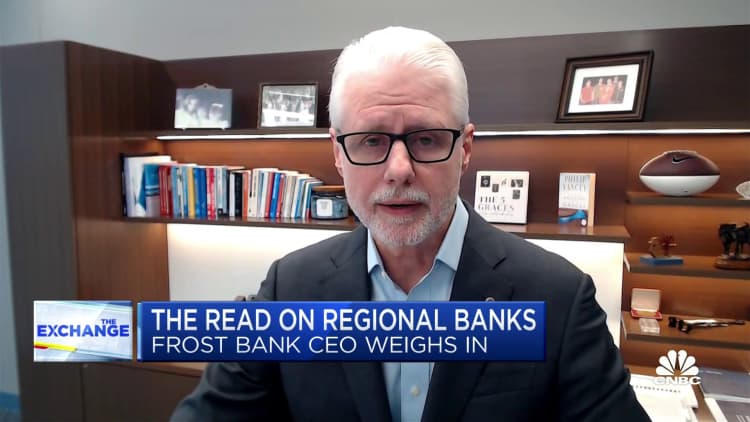Regional and midsized bank stocks fell sharply on Friday as SVB Financial failed to find a buyer amid a rapid outflow of cash from clients and was shut down by regulators.
Shares of First Republic fell nearly 15%, while PacWest Bancorp dropped more than 35%. Signature Bank, which has heavy exposure to the crypto industry, slid almost 23%.

The declines on Friday were building on a large sell-off from Thursday. The S&P Regional Bank ETF fell 16% for the week, which would be its worst week since March 2020.

SVB came under pressure after announcing Wednesday it had lost $1.8 billion on an asset sale and was looking to raise more capital. CNBC's David Faber reported Friday that the fundraising effort had failed and that SVB was exploring a potential sale. But Faber also reported the sale process was becoming difficult because of the rapid outflow of deposits from the bank.
At midday Friday, regulators said they were shutting down the bank and the Federal Deposit Insurance Corp. would take over insured deposits. Regional bank shares had recovered some of their morning losses, but news of SVB's failure sent them tumbling again.

First Republic fell as low as $45 per share during Friday's session, a decline of more than 50%. However, the bank may actually get some benefit from SVB's demise, as it was one of the financial institutions that saw heightened inflows on Thursday. The stock closed Friday at $81.76 per share.
While SVB's situation is somewhat unique because of its funding base focused on tech startups, other banks with large bond portfolios could face similar issues if they were forced to sell those bonds before maturity in order to raise funds. Treasurys have fallen in value the last 12 months as the Federal Reserve hiked rates eight times.
Those bond sales could incur losses like what has occurred with Silicon Valley Bank.
Still, Wall Street analysts believe that the issues at SVB are unlikely to spread to the broader banking sector. Shares of large banks saw smaller declines or even rose on Friday.
What's more, most of the assets sold by SVB were Treasurys, which are not at risk of default and will keep their value at maturity. The financial crisis of 2008-2009 involved mortgage-backed securities that collapsed in value from housing loan defaults.


